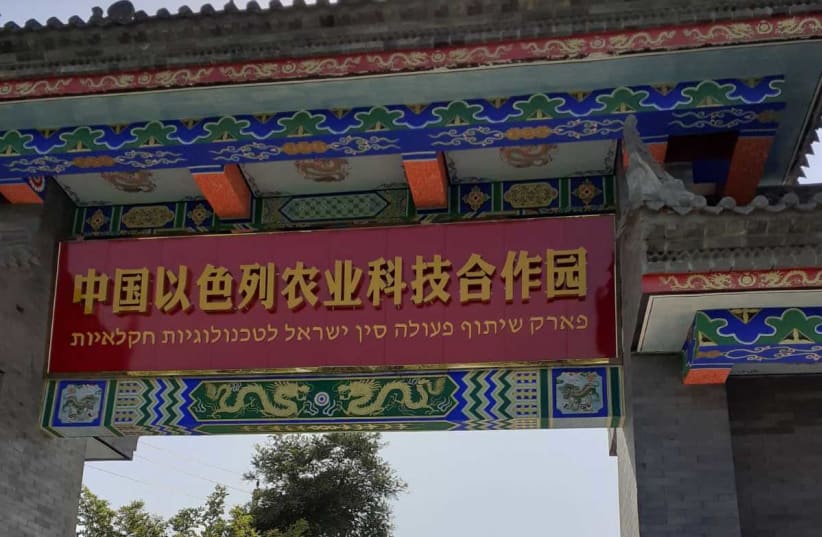China is thirsty for Israeli knowhow and innovation. And barring a fracture in its growing ties, Israel-China relations will continue to grow exponentially from its current $14 billion trade level as they have since Prime Minister Benjamin Netanyahu’s two visits to China in 2013 and 2017.
That was the takeaway from a week-long visit to the complex country last week by a small Israeli delegation of journalists, including The Jerusalem Post, and officials from the Prime Minister’s Office, the Foreign Ministry and the President’s Office.
The ancient and the modern continually butted up against each other, like in the Xian area, China’s ancient capital before Beijing, which dates back in some areas to 200 BCE. In addition to visiting the historic Terracotta Warriors Museum, the delegation met with Chinese officials to learn about joint tech and tourism projects in collaboration with Israeli bodies in Tel Aviv, Haifa, Herzliya and Netanya.
Collaborations are everywhere. In Yangling, in more central-China and somewhat more inland, the delegation met with municipal leaders and visited several different hi-tech agricultural projects, including Israeli-Chinese projects already up and running using algorithms and networked technology to thrive in arid areas.
In Shanghai on China’s southeastern coast and considered the largest city in the world with some 25 million people, the delegation met with municipal leaders, officials involved in China’s hi-tech seaports – which may transform the Haifa Port – and Bright Dairy and Food Co. officials involved with Israeli corporate giant Tnuva. These represent some of the largest joint China-Israel projects.
They also represent some of the more controversial ones. As a sign of openness, the Chinese were ready to discuss every controversial issue, including Iran, allegations of cyber spying by Chinese telecommunications giant Huawei and allegations of problematic Chinese management over Israeli companies where it has a controlling interest.
In Beijing on China’s northeast coast, besides visiting the “Forbidden City” where Chinese emperors once reigned, the delegation met with Chinese Foreign Ministry chief spokeswoman Hua Chunying and Department of West African and North African Affairs deputy director-general Qian Minjian, to discuss these controversies.
The delegation also met with the China Global Television Network and the Xinhua News Agency, two of the China’s most influential media agencies.
The officials refrained from delving too deeply into these issues, clearly hoping to keep the focus on positive cooperation in hi-tech and innovation between the countries. News reports of increasing Chinese-Israeli business and the upgraded relationship simply pale in comparison to the enormity of what is going on. This is even with what some have characterized as a temporary slowdown in certain areas following debates over Chinese management of the Haifa Port.
The Chinese revere Israel’s technology as well as Israeli strength in the rough neighborhood of the Middle East.
They will not explicitly help Israel in dealing with security threats from Iran, Lebanon and Syria. But for all of these parties to know (and maybe think twice) that if they fire on Israel, their rockets may land on some of the 140,000 Chinese tourists per year now visiting Israel or on China’s light-rail or ports projects, is significant in and of itself.
There are major differences between Israel and China in the areas of democracy, minority rights, freedom of the press and others. To the extent that China and Israel become more deeply invested in each other in a long-term sense, these issues need to be dealt with. To that extent, it is noteworthy that China is far more capitalistic and open than Soviet Russia or even the way China itself was 20 years ago.
That by no means ends the differences, but a nuanced discussion will be needed in addressing a country that may eventually become the top power. This means that growing the relationship between Jerusalem and Beijing is likely a strategic necessity for Israel, and, based on a week in the country, China sees the issue the same way.

